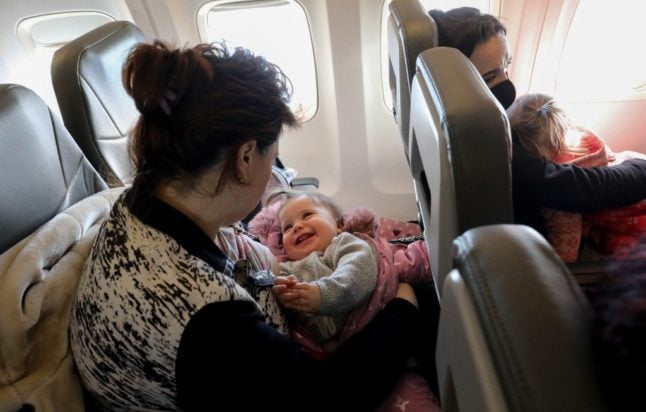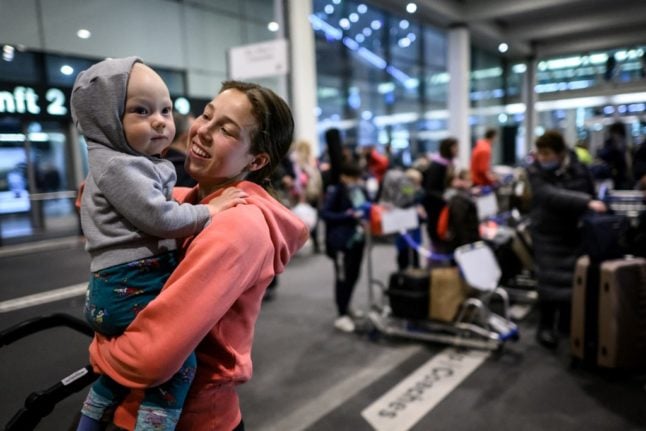So you’ve become a father or mother to a baby born in Spain and want them to get a UK passport?
It makes sense to get the process going as soon as possible (or even preparing the documents in advance) as Spanish law will not grant your child Spanish nationality automatically just because they were born in Spain.
That right will usually only be granted if one of the child’s parents is Spanish.
If at least one of the parents living in Spain is British, you can apply for a UK passport for your baby, even if they were born in Spain and not the United Kingdom.
If your child doesn’t have the automatic right to Spanish nationality, in order for you to process their Spanish residency and get them their foreigner ID number (NIE) that will be needed for other official matters, they will first have to have a nationality with their corresponding ID number.
Therefore, getting your child a UK passport (or another country’s passport if the other parent is not British) is an important step to consolidating your baby’s rights in Spain.
This article is not meant to replace the information provided by British authorities on gov.co.uk but rather offer additional and specific details pertaining to an application made from Spain for a child born in Spain, in order to help you get your child’s UK passport as quickly as possible.
What are the first steps when applying for a child’s UK passport from Spain?
The application is completed online through the HM Passport Office page on gov.co.uk.
But before you go ahead and finalise this, it’s advisable that you prepare the documents you will need to send for there not to be a big time difference between your online application and document submission via courier, otherwise there could be delays.
The original documents you will generally need to send are as follows:
- Full Spanish birth certificate (certificación literal) issued to you either at the hospital or the civil registry.
- Sworn translation of Spanish birth certificate
- One of the British parent’s full birth certificate
- All maternal and paternal grandparents’ full British birth certificates (if one of the child’s parents and set of grandparents are not British, HMPO customer service advises sending a cover letter explaining how providing their non-British birth certificates is not relevant to this UK passport application)
There are other documents that may be necessary for you to send via courier depending on your specific circumstances, so our advice is to go through HMPO’s online application questionnaire to make sure you have all the right information first, and ending the process before getting to the final payment screens.

Again, we must stress that you have to send original documents, so for example locating and receiving the British grandparents’ full-length birth certificates in advance could save you some valuable time. As they’re important documents, you could begin to enquire about the best/safest/cheapest way to courier them to the HMPO offices in the UK.
You’ll also have to factor in the time it takes to get your baby’s full birth certificate translated. You can use a sworn English-Spanish translator in either the UK or Spain. Here is a list of Spain-based ones; you can search for ones in your city or town in Spain if you prefer.
Keep in mind as well that you will also probably be asked to provide the details of someone who can confirm your baby’s identity and yours. They have to have known the British parent for two years at least, be in a so-called recognised profession (everything from a teacher to a civil servant, full list here). Luckily, they can be based in Spain (British, EU, American and some other nationalities are valid). Start thinking in advance who this could be in order to save you time (remember they will receive an email in English with a link to a form they have to complete, and potentially also receive a phone call from HMPO).
Once you have the documents ready, what should you do next?
If you have everything ready to send and have found the right courier, now is a good time to complete the online process on the overseas British passport applications page.
You’ll be prompted to either take a photo of your newborn for their passport, or have a professional take it. As the software gov.co.uk uses can recognise in advance whether the photo you’ve uploaded meets their requirements, it may be a better option to take it and retake it yourself than having it done at a photographer’s studio in Spain, as you will have to pay and they won’t necessarily get it right the first time around.
Go through the stages carefully and this time go to the final payment page. Remember that if there are documents missing from your application or you fill in something incorrectly this could delay the application.
It’s £61 for a UK child’s passport and a £19.86 courier fee for the UK passport to be sent to your address in Spain.
Once you’ve paid, you’ll be asked to provide the contact details of the person who will confirm your baby’s identity and yours.
Soon after completing that process, you will receive an email telling you to send the relevant application documents to the address HMPO provides. Take those along to your Spain-based courier of choice and send them to the UK.
How long does it take to receive a child’s UK passport when applying from Spain?
According to HMPO, it can take up to ten weeks for the whole process, and as a general rule applications from overseas can take longer.
There were reports in the UK news in 2021 and 2022 that His Majesty’s Passport Office has faced considerable delays at times due to backlogs and because TNT, the only courier with a contract to send UK passports to applicants, has not been up to the task.
Unfortunately, there is no fast-track option for people applying for first-time passports from Spain (it is possible for renewals).
That’s not to say that it will take up to ten weeks for you to get your child’s UK passport approved and delivered to Spain. With the time-saving tips in this article and if luck is on your side, it could be less than a month.
The HMPO will notify you when your documents arrive and once the passport is approved, printed and sent.
When it’s in TNT’s hands there is no way of tracking the passport, but once it is ready for dispatch to Spain, another courier (usually DHL) takes over the delivery and will email you to notify you of its impending arrival.



 Please whitelist us to continue reading.
Please whitelist us to continue reading.
Member comments